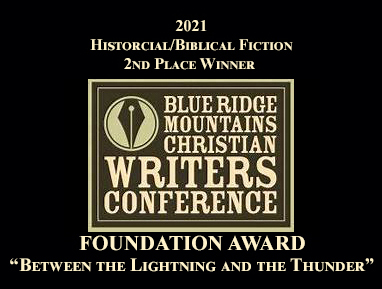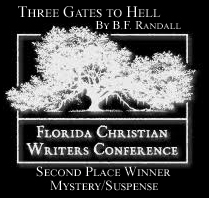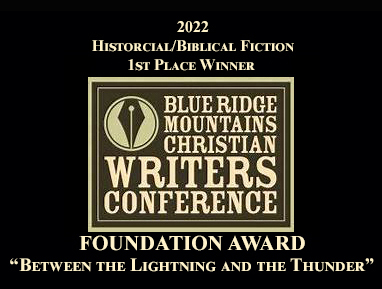 Cruising Route 66
Cruising Route 66
The Revealing of The Deus
The revelation of Jesus Christ, which God gave Him to show His servants what must soon take place. He made it known by sending His angel to His servant John, who testifies to everything he saw–that is, the Word of God and the testimony of Jesus Christ.
Revelation 1:1-2
Let me begin by letting you know that we have reached the end, we are at our final destination along God’s Route 66. The Book of Revelation captivates the mind and imagination of both believers and unbelievers alike. Its imagery leaves the reader both wary and curious. This is not an exhaustive study, but simply a taste. It’s my hope it will tantalize your spiritual palate and encourage you to dig deeper.
Revelation, comes from the Greek apocalupsis – English “apocalypse,” meaning, “The disclosing or revealing of Jesus as The Christ” – “The Deus.” – “Divine Creator.” – “Master of the Universe.” – “The Lord of Human History.” Addressing the divinity of Jesus is done by focusing on Him in five distinctly defined ways.
His Person – glorified, ascended, worshipped, and mighty and victoriously.
His Purpose – to administrate and to lead His church.
His People – disciplined, worshiping, groomed in truth, and robed in purity.
His Primary Opponent – the spirit of this world, called “the dragon.”
His Prophesied Triumph – Christ the Defender, and Advocate, Jesus the Victor.
“Blessed is the one who reads the words of this prophecy, and blessed are those who hear it and take to heart what is written in it, because the time is near.” Revelation 1:3
This is the only book of the Bible that comes with a promise of a blessing if it is read or heard and taken to heart. This is a book of promise, but it has also been a book that has caused division. There are as many views of interpretation of this Book as there are people willing to give them.
There is a foundational principle that must be considered when studying the Book of Revelation. This is a book of prophecy, and as such the same prevailing standards and principles of proper study must apply to it as with any other book of prophecy. The prophets wrote what they saw and what they heard. They tell us chronologically when they saw it and when they heard it. They are not able to tell us when it happened.
Books of prophecy are written in a style known as “discursive”. It means to move from one topic to another, including digressions. Although there is some sequential order, John is not necessarily giving us an exact order of the events. One common reason for this book to be difficult to grasp is because of the doctrinal dogma that causes us to force these events into some pre-established timeline.
“John, To the seven churches in the province of Asia: Grace and peace to you from Him who is, and who was, and who is to come, and from the seven spirits before His throne.”
Revelation 1:4
Revelation was written at the end of Emperor Domitian’s rule, the persecutor of Christians. Seven churches of the Roman province were addressed, Asia, Ephesus, Smyrna, Pegamum, Thyatira, Sardis, Philadelphia and Laodicea.
The author is John the Apostle, writing from a small island, used as a Roman penal colony just 37 miles southwest of the coast of Asia, in the Aegean Sea. He was imprisoned for preaching the gospel and because he didn’t cook well. (It’s said that he was thrown into a pot of boiling oil, only to come out unharmed.)
John introduces himself, addresses his audience, and then proclaims grace and peace upon the church. The Book opens with grace and ends in chapter 22 with grace, but the term doesn’t appear anywhere else. God the Father is described as “Him who is, and who was, and who is to come.” He is the God of the past, the present, and the future.
Each of the four living creatures had six wings and was covered with eyes all around, even under his wings. Day and night, they never stop saying: “Holy, holy, holy is the Lord God Almighty, who was, and is, and is to come.” Revelation 4:8
John names Jesus as the One to receive “glory and power for ever and ever!” Then he breaks out in praise, proclaiming all the reasons Jesus is worthy:
“To Him who loves us and has freed us from our sins by His blood, and has made us to be a kingdom and priests to serve His God and Father, to Him be glory and power for ever and ever! Amen.” Revelation 1:5a-6
He loves us, He freed us from our sins, and He made us a kingdom of priests. – The verb “love” can be translated “keep on loving”.
“Look, He is coming with the clouds, and every eye will see CHim, even those who pierced Him; and all the peoples of the earth will mourn because of Him. So shall it be! Amen”
Revelation 1:7
This verse is the “thesis statement” of the Book of Revelation, and it is the first prophecy. It emphasizes the contrasts between Christ’s first and second comings. (“He makes the clouds His chariot and rides on the wings of the wind.” Psalm 104:3)
The first coming of Christ was lowly, obscure, and meek. Hardly anyone noticed His birth except a few shepherds and some Magi. However, the Second Coming will be “with the clouds”, representing the majesty of God’s presence, “and every eye will see Him.” Unlike His first coming, this one won’t go unnoticed. In fact, the whole earth will be aware of this wondrous event. Although not directly quoted, this prediction is based on prophesies by both Daniel and Zechariah.
In my vision at night I looked, and there before me was one like a son of man, coming with the clouds of heaven. He approached the Ancient of Days and was led into his presence.
Daniel 7:13
And I will pour out on the house of David and the inhabitants of Jerusalem a spirit of grace and supplication. They will look on me, the one they have pierced, and they will mourn for him as one mourns for an only child, and grieve bitterly for him as one grieves for a firstborn son. Zechariah 12:10
Those who have rejected Christ in every age, beginning with those who pierced Him, will come to the realization of their terrible error. It says that they “will mourn because of him.” This is often seen as grief and repentance.
The theme of the Book of Revelation is the conflict between the powers of good and evil, and the readers are reminded of who really has the power. He is the Alpha and Omega, the One in control before time began and the One who will be in control after the end. His power is seen in the title God calls Himself, “the Almighty,” a term found ten times in the New Testament, nine of them in Revelation.
This has been a very brief and limited initial view of this intriguing book. Take the time to explore further. There is much written about it. Find good, well-established and recognized commentaries of all the books of the Bible, and examine more than just one. Remember, they are written by well-studied men and women, but they are still merely commentaries. Search God’s Word on your own and ask the Holy Spirit to guide and enlighten you to the truth.
I wish to close with the closing words of our Lord.
Those whom I love I rebuke and discipline. So be earnest, and repent. Here I am! I stand at the door and knock. If anyone hears my voice and opens the door, I will come in and eat with him, and he with me. To him who overcomes, I will give the right to sit with me on my throne, just as I overcame and sat down with my Father on his throne. He who has an ear, let him hear what the Spirit says to the churches.” Revelation 3:19-22
He who testifies to these things says, “Yes, I am coming soon.” Amen. Come, Lord Jesus. The grace of the Lord Jesus be with God’s people. Amen. Revelations 22:20-21
Until next time,
Ben








